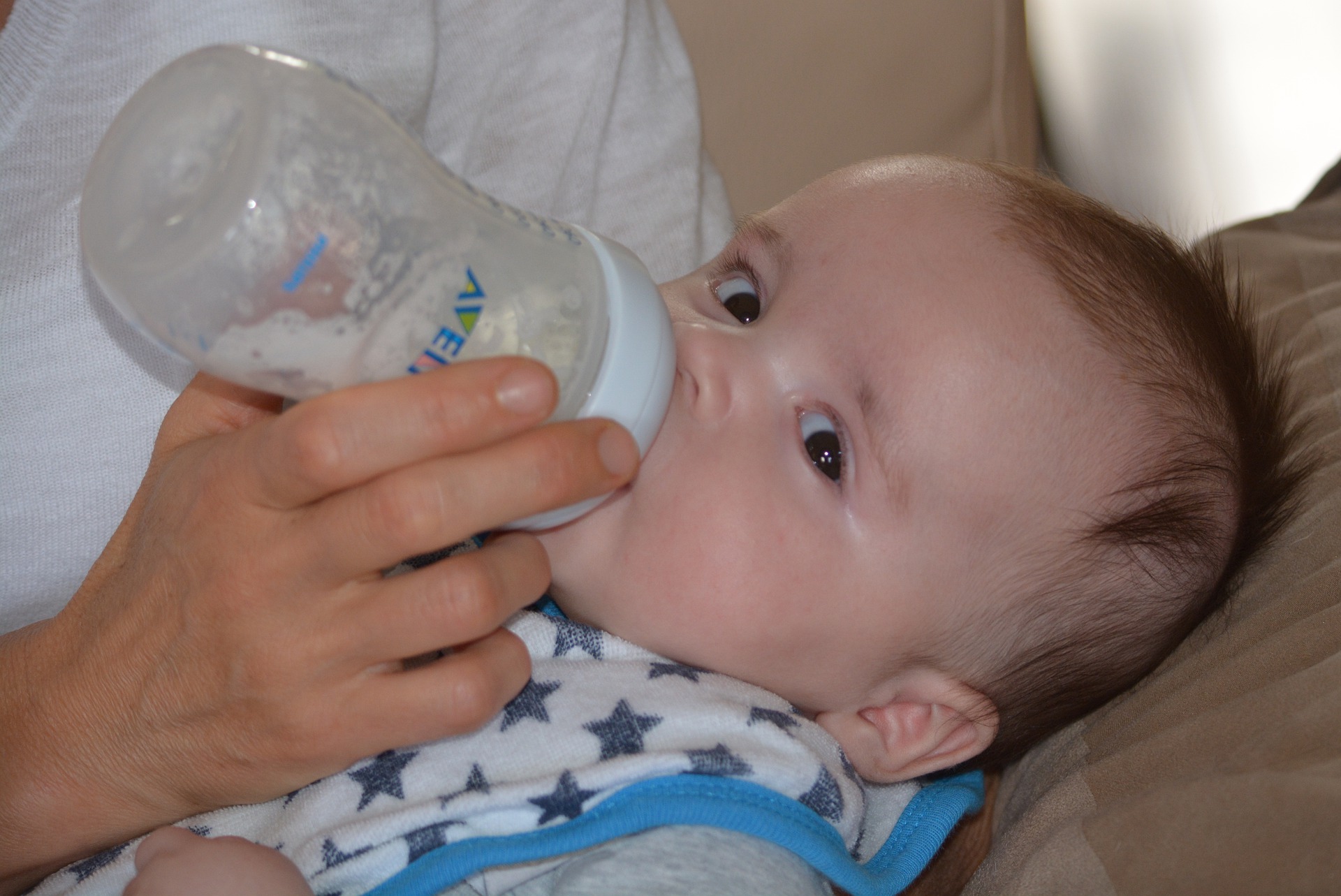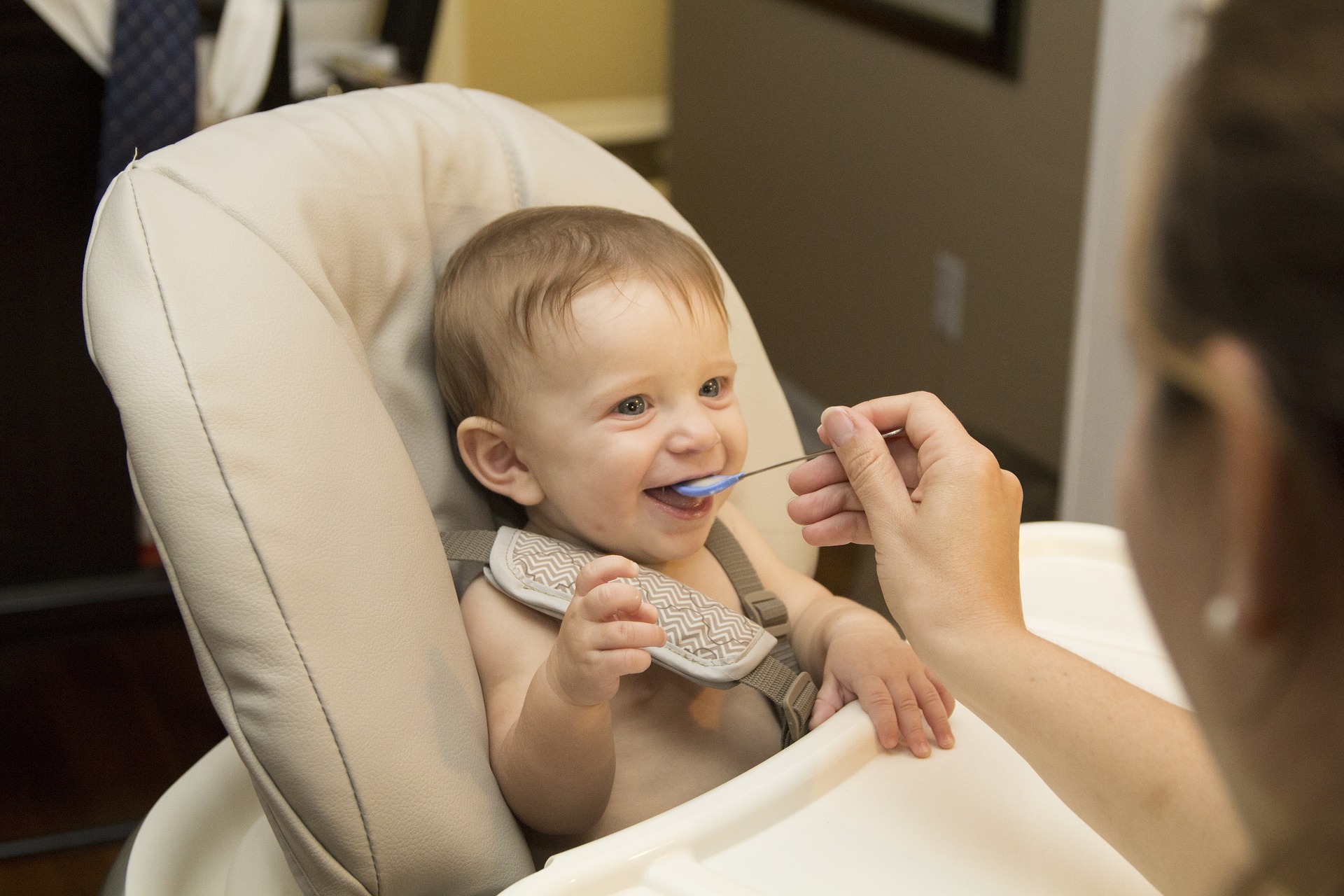What if you introduced your little one to cow’s milk-based formula, and they didn’t take to it? Or worse yet, they got sick? What do you do then? You might wonder how long it takes for a baby to adjust to a formula change. New parents always are asking me similar questions.
Thankfully, most babies will readily accept a different formula if you switch brands or types. However, there are some things you should keep in mind before making the switch. In this blog post, we’ll tell you everything you need to know about how long it takes for a baby to adjust to formula change so that you can make the best decision for your child. Keep reading!
Table of Contents
- How Long Does It Take for a Baby To Adjust to Formula Change?
- Why Might You Need to Switch Formulas?
- What Are Some Things To Keep In Mind Before Making a Switch?
- How Will You Know if Your Baby Has Trouble Adjusting?
- What Can You Do To Help Your Baby Adjust?
How Long Does It Take for a Baby To Adjust to Formula Change?

It is generally recommended that you give your baby at least a week to adjust to a new formula. This means that you should not expect your baby to be immediately comfortable with the new formula and may experience some initial discomfort.
However, if, after a week, your baby is still having trouble adjusting, it is essential to speak to your pediatrician. They will be able to advise you on whether or not you should continue with the new formula or switch back to the old one. In most cases, a little patience and perseverance will eventually lead to a successful transition to the new formula.
Why Might You Need to Switch Formulas?
You’ve researched, picked out the perfect baby formula, and you’re ready to go. But then, when you thought you had everything figured out, your baby starts to refuse the formula. Or maybe you notice that your baby is starting to have tummy trouble or seems fussy after feedings. If this happens, it might be time to switch formulas.
There are several reasons why you might need to switch formulas. Maybe your baby is allergic to something in the formula or is not digesting it well. Perhaps the baby formula you chose is not giving your baby enough nutrients or calories. Or maybe your baby does not like the taste of the formula. Whatever the reason, if you find yourself needing to switch formulas, don’t despair. There are plenty of other formulas, and with a little trial and error, you’re sure to find one that works for your baby.
As a baby grows, her nutritional needs change. For this reason, you may need to switch formulas several times during your baby’s first year. For example, you may start with a basic formula, then move to a more nutrient-dense formula as your baby starts to eat solid foods.
You may also need to switch formulas if your baby isn’t tolerating a particular brand well. Some common signs that your baby isn’t tolerating a formula include fussiness, gas, and diarrhea. If you notice any of these signs, talk to your pediatrician. She may recommend switching to a different brand or type of formula.
What Are Some Things To Keep In Mind Before Making a Switch?

The process of baby formula change can be complicated for both parents and infants. I had my challenges with this as well. While there are benefits to switching formulas, it’s essential to be patient and understand that it may take some time for your baby to adjust. Here are some things to keep in mind when changing formulas:
- Give your baby a few days to adjust to the new formula. Don’t be discouraged if they don’t immediately take to it.
- Start with a small amount of the new formula and gradually increase the amount over time.
- Pay attention to your baby’s cues. If they seem unhappy or are having trouble digesting the new formula, talk to your pediatrician.
- Be prepared for possible setbacks. It’s not uncommon for babies to go through periods of fussiness or diarrhea when switching formulas. Again, talk to your doctor if you’re concerned about your baby’s reaction.
How Will You Know if Your Baby Has Trouble Adjusting?
As a baby starts to grow, they will go through different stages of development. Regarding feeding, baby formula is usually the best option for babies under six months old. However, there are times when a baby may need to switch from one baby formula to another. Be sure to check with your pediatrician before making any adjustments.
If you are thinking about making a switch, you must know how your baby will react. Here are some signs that your baby is having trouble adjusting to the new baby formula:
- Your baby is fussier than usual when eating.
- Your baby seems gassy or bloated.
- Your baby has more frequent or severe bouts of diarrhea.
- Your baby has fewer wet diapers than usual.
- Your baby has a rash around its mouth.
- Your baby seems irritable or cranky.
You must speak with your child’s pediatrician if you notice any of these signs. They can help you determine if the formula switch is necessary and offer guidance on making the transition as smooth as possible for your baby.
What Can You Do To Help Your Baby Adjust?

When you first bring your baby home from the hospital, it can be a bit overwhelming. You are responsible for these tiny human beings; everything they do is new to them. One of the first things you will have to do is help them adjust to baby formula if you are not breastfeeding. The good news is that you can do some things to make the process easier.
First, try to introduce the new baby formula gradually. If you are switching from breastfeeding to formula, start by giving your baby one bottle of formula daily in addition to nursing. You can then increase the number of bottles as needed. If you are switching from one baby formula to another, start by mixing the two formulas and then slowly increase the amount of new baby formula until your baby is only drinking the new baby formula. Either way, making the transition gradually will help your baby adjust to the new taste and texture of the baby formula.
Second, be sure to pay attention to how your baby is responding to the switch. Watch for signs that they are not tolerating the new baby formula well, such as excessive gas, diarrhea, or vomiting. If your baby seems to be having any trouble adjusting, talk to their doctor about what other options may be available.
Finally, don’t forget to take care of yourself during this time. Switching can be difficult and stressful, so give yourself a break when you need it. Ask for help from family and friends when possible, and try to relax and enjoy this particular time with your new baby.
Thanks for reading my articles!
Sharon Dunn











